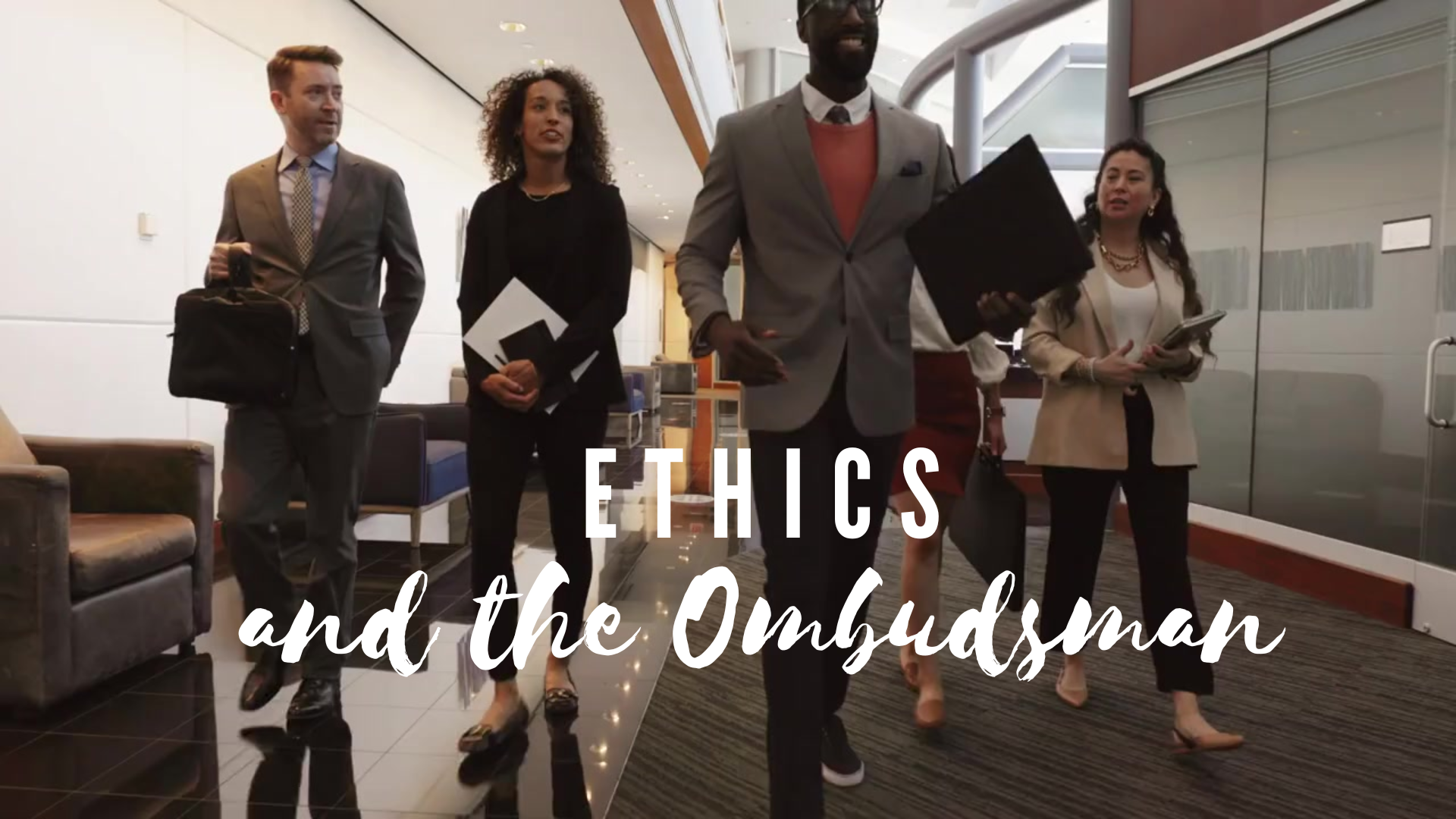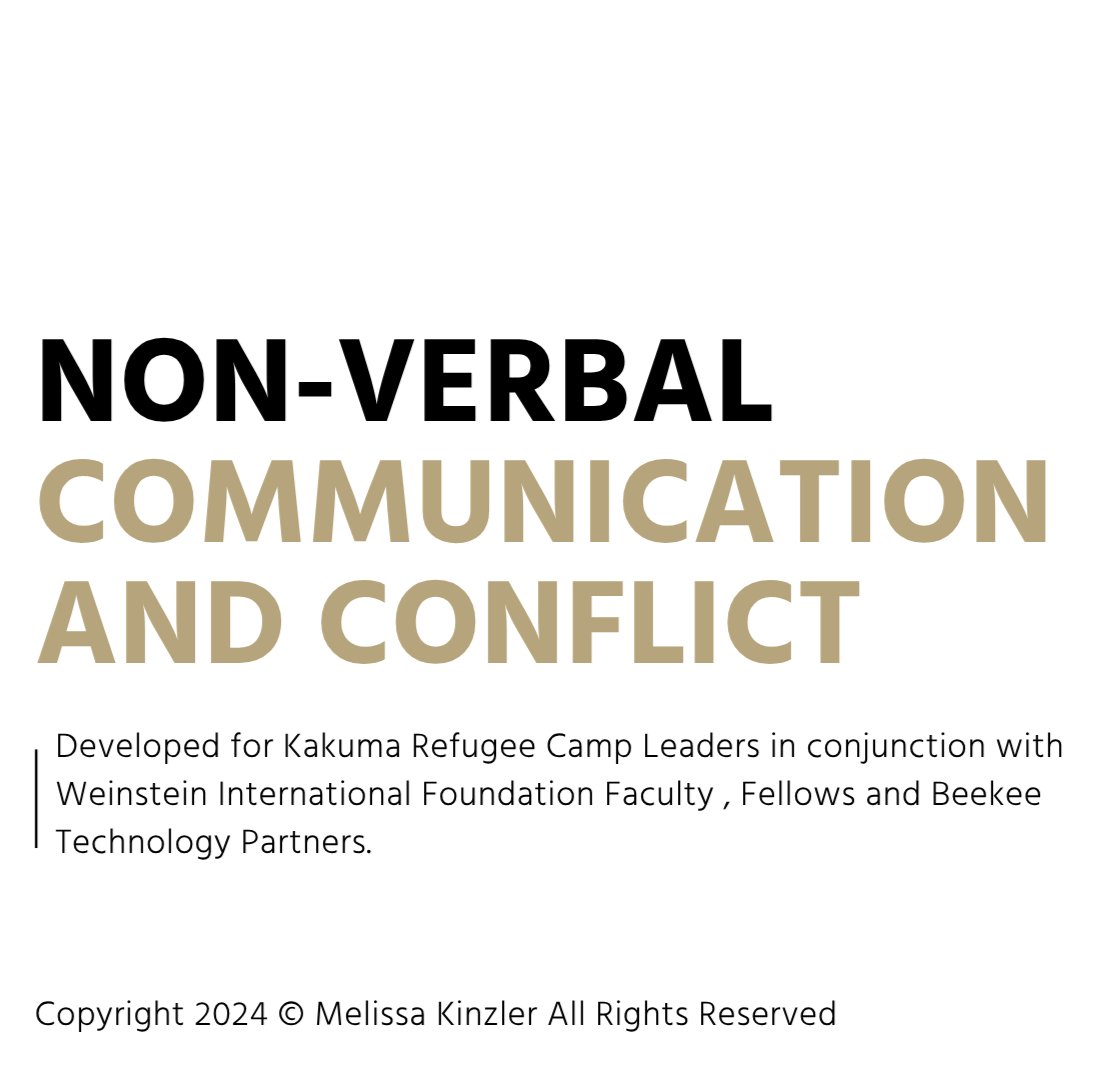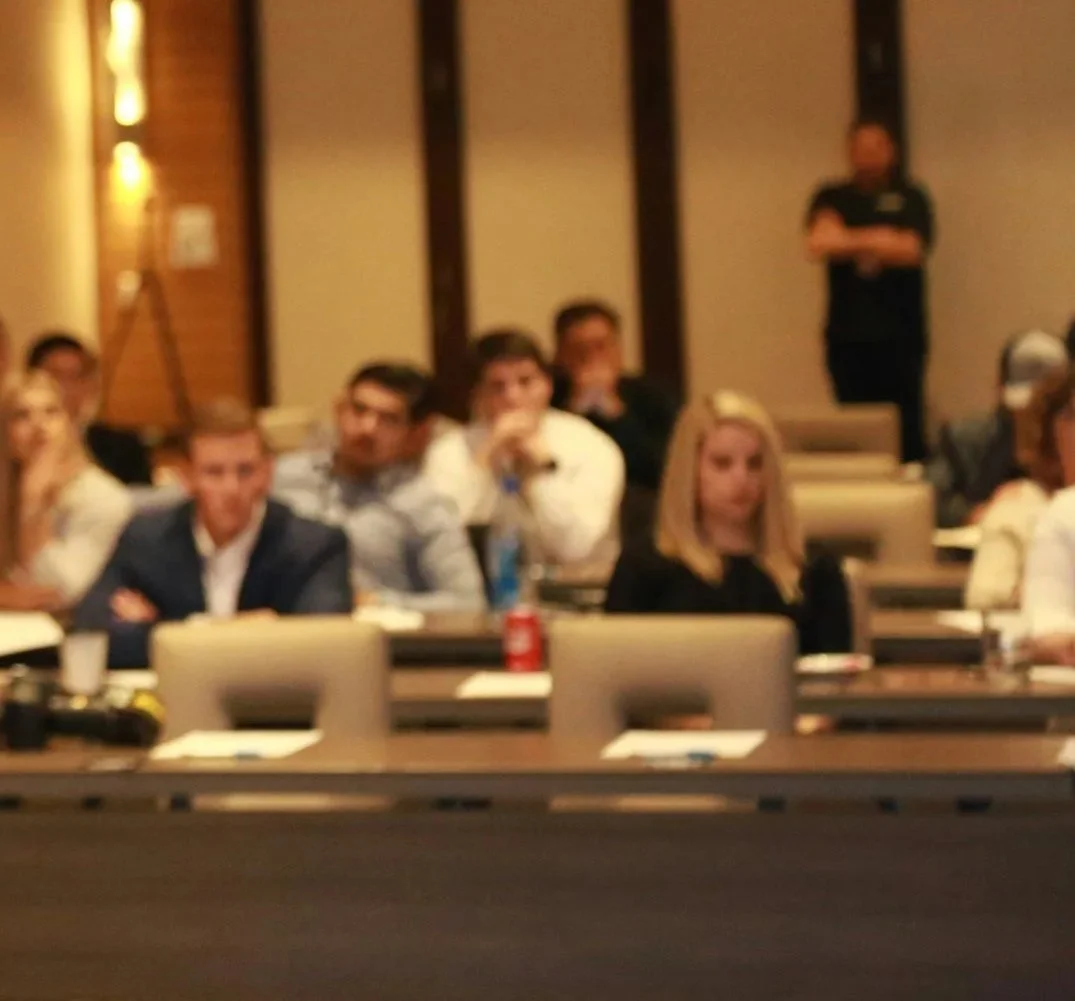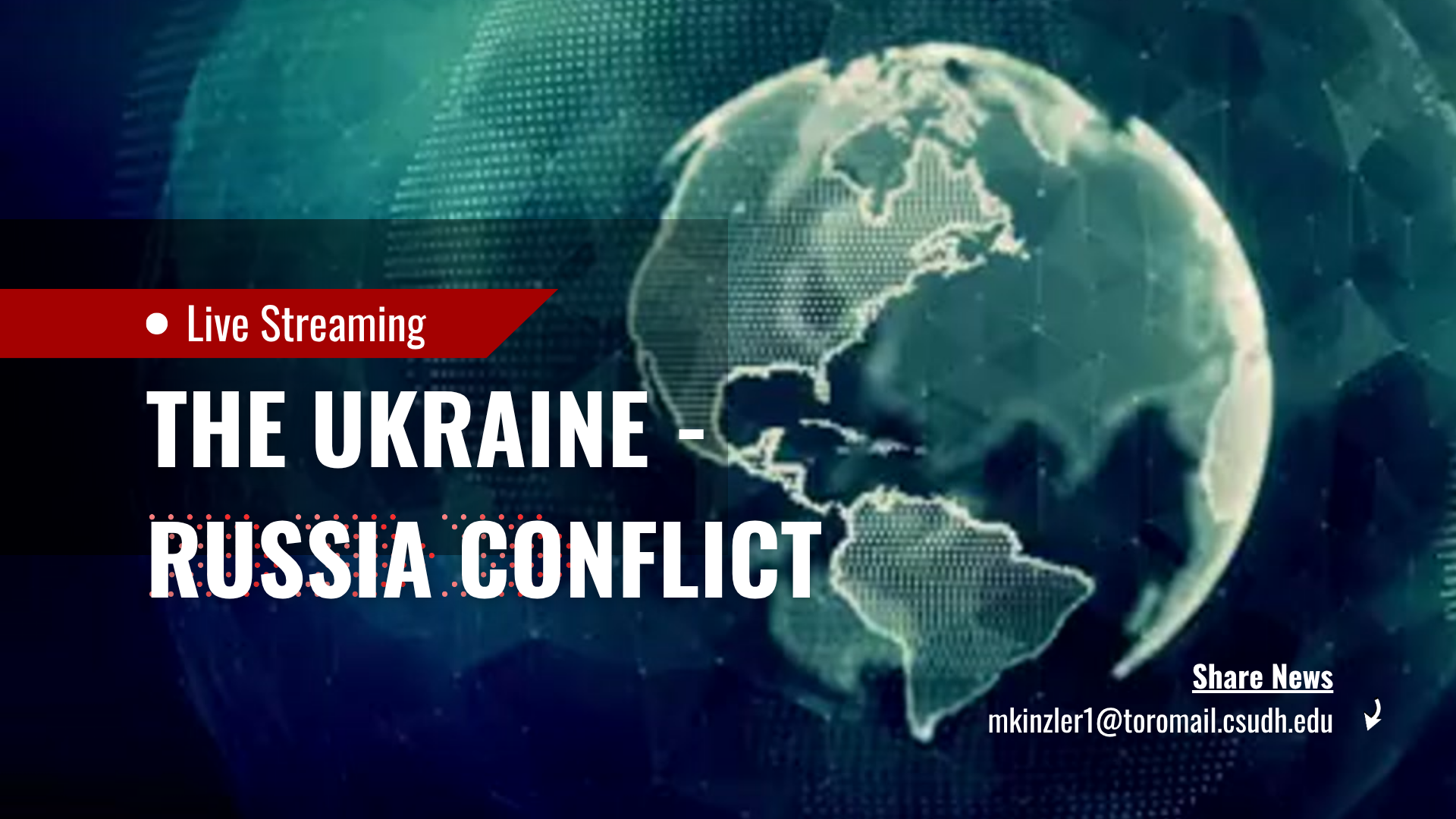Portfolio: Mediation and Arb-Med
-

Commercial Arbitration: Technology Firm | Bitcoin Partnership Dispute: Digital Assets, Fiduciary Duty & Emerging Law
Commercial Arbitration | California | Collaborative Contributor
This landmark arbitration involved a high-value Bitcoin partnership dispute in California under the purview of a senior American Arbitration Association (AAA) Arbitrator. The matter stemmed from the dissolution of a technology venture whose primary asset—a jointly held digital currency portfolio—had multiplied dramatically in value. What began as a straightforward claim of unequal profit distribution evolved into a sophisticated examination of fiduciary duty, partnership law, and the rapidly developing legal framework surrounding digital assets.
Complexities and Legal Nuances
Central issues included allegations of unilateral liquidation, opaque record-keeping, and undisclosed transfers of cryptocurrency across multiple wallets during periods of extreme market volatility. The case required deep analysis of blockchain transactions, valuation methodology, and the ethical obligations of partners managing non-traditional, decentralized assets. Layered within the legal questions were human concerns—erosion of trust, perceived betrayal, and the struggle to define fairness in an arena where regulatory guidance remains fluid and incomplete.Role and Collaborative Function
Working in tandem with the presiding Arbitrator, I served as a collaborative contributor—refining, restructuring, and strengthening key portions of the arbitral opinion and analytical framework. My work focused on ensuring clarity, precision, and legal soundness while integrating the nuanced realities of blockchain technology into established partnership doctrine. I applied mediation insight to reframe positional arguments into interest-based reasoning and to surface underlying motivations obscured by technical jargon and emotional defensiveness.Strategic and Analytical Contributions
> My contributions centered on transforming complexity into coherence:> Translating blockchain evidence into accessible legal findings.
> Strengthening the logical structure of the arbitral reasoning to withstand appellate scrutiny.
> Bridging gaps between traditional fiduciary principles and emerging standards in digital finance.
> Clarifying areas where existing law lagged behind technological practice, thereby future-proofing the analytical integrity of the award.
Impact and Takeaways
This matter exemplified the convergence of commercial law, technology, and human behavior—highlighting the need for adaptable reasoning in an era of decentralized finance. Through disciplined analysis and empathic collaboration, I helped restore clarity to an otherwise chaotic intersection of innovation and accountability. The resulting award reflected not only legal precision but a deep awareness of the human and ethical dynamics that define modern commercial partnerships.Core Competencies:
Commercial Arbitration · Digital Asset & Blockchain Disputes · Partnership Law & Fiduciary Duty · Legal Drafting & Analytical Refinement · Forensic Transaction Analysis · Emerging Financial Regulation · Ethical Stewardship in Technology Ventures · Strategic Mediation Support · Interest-Based Reframing · Complex Case Management -

High-Stakes Law Firm Dispute: Hostile Takeover & Internal Power Dynamics
Private Commercial Mediation | California
This protracted and high-profile case centered on the hostile takeover of a prestigious law firm by one of its senior partners, unfolding over several years of litigation and internal arbitration. What began as a disagreement over governance and firm direction evolved into a dense web of fiduciary claims, partnership obligations, insurance coverage disputes, and professional ethics questions—each issue amplified by fractured communication and the erosion of trust among former colleagues.
At its core, the matter revealed the fragile balance between power, legacy, and loyalty within elite professional partnerships.
The dynamics demanded a rare combination of legal sophistication, business acumen, and emotional intelligence—a nuanced understanding of how leadership transitions, financial exposure, and internal politics converge in high-value professional organizations. Recurring issues included the valuation of goodwill, partner compensation structures, client ownership, reputational harm, and the ethics of succession, each requiring delicate reframing and strategic negotiation sequencing to restore communication and explore durable resolution.
Working alongside a seasoned distinguished neutral , I served as both strategist and co-mediator, guiding confidential mediation. Our collaboration required a fusion of analytical precision and empathic insight—approaching each claim, defense, and allegation not as isolated legal positions, but as expressions of deeper motivations, ambitions, and fears. Subsequently, we deconstructed entrenched narratives, clarified hidden interests beneath adversarial postures, and gradually rebuilt the scaffolding of trust necessary for forward movement.
Throughout the process, I applied a professional business pragmatism grounded in human understanding—using structured negotiation frameworks, reflective inquiry, and evaluative analysis to illuminate pathways toward resolution. My role was to dissect complexity while preserving dignity, translating chaos into coherence, reestablishing credibility among fractured stakeholders, and restoring the capacity for reasoned decision-making.
Ultimately, this case exemplified the caliber of commercial and interpersonal sophistication entrusted to my practice—where law, leadership, and human psychology intersect, and where the mediator’s steady presence can transform the trajectory of even the most entrenched disputes.
Core Competencies:
Commercial Mediation · Law-Firm Governance Disputes · Partnership & Fiduciary Claims · Insurance Coverage & Ethics · Complex Case Management · Strategic Negotiation Sequencing · Power & Leadership Dynamics · Business Valuation & Goodwill Assessment · Reflective Inquiry & Reframing · Multi-Party Facilitation · Emotional Intelligence in Professional Cultures -

Fortune 500 Employer: Executive Termination and Allegations of Discrimination
Employment Mediation | California | Lead Mediator
This matter involved a senior human resources executive at one of the world’s largest multinational retailers who brought forth claims of wrongful termination, discrimination, and retaliation following his dismissal for alleged misconduct. Originating as a federal employment action, the case was diverted to private mediation prior to trial at the request of counsel and the presiding judge, given its complexity, high monetary exposure, and the reputational stakes for all parties involved.
As Lead Mediator, I was engaged to conduct a comprehensive, pre-litigation resolution process addressing the intertwined legal, procedural, and interpersonal dimensions of the dispute. The matter presented a multi-layered intersection of employment law, corporate ethics, and executive accountability within a global enterprise environment—requiring a blend of evaluative, facilitative, and transformative mediation techniques.
The claimant, a long-tenured executive with regional management authority, alleged retaliatory discharge and systemic bias. The corporation maintained that termination was predicated upon substantiated findings of gross misconduct and repeated policy violations, supported by multiple internal investigations and compliance audits. The evidentiary record revealed divergent narratives concerning workplace conduct, equity, and due process, each underscored by complex organizational hierarchies and internal power dynamics.
The mediation convened multiple stakeholders—corporate counsel, external defense attorneys, plaintiff’s counsel, and executive leadership representatives—each balancing the demands of confidentiality, fiduciary duty, and public image. I employed a phased negotiation architecture incorporating early neutral evaluation, sequential caucusing, and controlled information exchange to promote strategic de-escalation and analytical clarity. The process drew upon federal employment law precedents, while integrating interest-based negotiation and risk-adjusted settlement modeling.
Throughout, I maintained an evaluative posture tempered with empathy, probing not only the legal merits but the underlying emotional and reputational currents that obstructed resolution. The mediation advanced through iterative analysis of liability exposure, credibility assessment, and the comparative advantages of pre-trial settlement.
Ultimately, the process produced substantive progress toward resolution and institutional learning, reaffirming the value of early private mediation in federal employment matters of national scale. The case stands as an exemplar of high-level, trust-dependent dispute resolution, where law, leadership psychology, and organizational ethics intersect within a framework of procedural integrity and discretion.
Core Competencies:
Federal Employment Mediation · Complex Case Management · Discrimination & Retaliation Claims · Corporate Ethics & Compliance · High-Conflict Negotiation · Risk Assessment & Early Neutral Evaluation · Legal-Ethical Interface · Reputation Management · Multi-Party Facilitation · Emotional Intelligence in Leadership Disputes -

Commercial Arbitration: International Airline Employment Dispute
Description Coming Soon
-

Commercial Mediation: Banking
Description Coming Soon
-

Commercial Mediation: Financial Services Company
Description Coming Soon
Portfolio: Select Government Cases
-

Commercial Mediation | Employment | Executive Performance and Termination Dispute
Lead Mediator | Trusted Mediators International | Confidential Federal Employment Mediation
This matter involved a federal employment dispute between a senior human resources executive and one of the world’s largest multinational retail conglomerates, a corporation with vast global operations and a workforce numbering in the millions. The case was referred to private mediation prior to trial due to its complexity, reputational sensitivity, and the high monetary exposure associated with parallel administrative and civil claims.
Serving as Lead Mediator, I presided over a multi-phase confidential mediation process convened under the auspices of Trusted Mediators International. The dispute centered on allegations of wrongful termination, retaliation, and discrimination, balanced against the corporation’s assertion of gross misconduct, breach of fiduciary duty, and policy noncompliance by the claimant. Multiple internal investigations, compliance audits, and executive reviews underpinned the employer’s defense, creating a dense evidentiary landscape and competing narratives of intent, performance, and accountability.
The mediation required a hybrid evaluative-facilitative approach, integrating federal employment law principles with strategic, interest-based negotiation methods. The matter presented multi-jurisdictional implications and involved counsel from national defense firms and plaintiff-side employment specialists, each operating under tight confidentiality and complex internal approval protocols.
To manage the intricate procedural and interpersonal dynamics, I implemented a phased negotiation architecture combining early neutral evaluation, sequential caucusing, and controlled information disclosure. This framework enabled the parties to test litigation risk, explore reputational safeguards, and evaluate the comparative economics of pre-trial settlement. The process demanded precise risk calibration, advanced interpersonal acuity, and unwavering neutrality, given the asymmetry of resources and the high degree of public exposure inherent in disputes involving global employers.
Ultimately, the mediation fostered a measured path toward resolution and organizational reflection, advancing beyond positional advocacy toward structural understanding. The matter underscored the essential role of private mediation as a pressure-release mechanism within the federal employment system—preserving judicial economy while allowing dignified resolution of disputes implicating corporate governance, leadership integrity, and institutional ethics.
Core Competencies:
Federal Employment Mediation · Executive Termination & Retaliation Claims · Corporate Governance & Compliance · Complex Case Management · Risk Assessment & Early Neutral Evaluation · Legal-Ethical Interface · Multi-Party Negotiation · Reputational Risk Management · Institutional Ethics · Emotional Intelligence in Leadership Disputes -

Federal Civil Rights Mediation: Accessibility and Public Accommodation Dispute
Lead Mediator | Trusted Mediators International | Federal Employment Mediation
This matter concerned a federal civil rights action arising under Title III of the Americans with Disabilities Act (ADA) and its state-law analogues, including the California Unruh Civil Rights Act and related accessibility statutes. The dispute involved allegations by a private plaintiff asserting that a large-scale commercial property operated by a national retail enterprise failed to comply with federal accessibility standards, thereby denying equal access and full enjoyment of goods and services to individuals with disabilities.
The plaintiff alleged multiple architectural and operational barriers—ranging from noncompliant slopes and cross-slopes in accessible parking spaces to deficiencies in path-of-travel, signage, and surface markings—that collectively interfered with mobility, safety, and dignity. These alleged violations gave rise to claims for injunctive relief, statutory damages, and attorney’s fees under 42 U.S.C. §§ 12101 et seq., with supplemental jurisdiction predicated on 28 U.S.C. § 1367 and venue appropriately invoked pursuant to § 1391(b)-(c).
Serving as Lead Mediator, I was appointed to preside over a pre-trial mediation convened under the federal court’s ADA Alternative Dispute Resolution Program, designed to facilitate early settlement of accessibility cases through structured negotiation and compliance planning. The mediation required balancing statutory obligations under federal accessibility guidelines (ADAAG and Title 24 of the California Building Standards Code) against the economic and logistical constraints inherent in large-scale commercial retrofitting.
The case demanded an integrated approach combining legal analysis, technical evaluation, and relational diplomacy. Key considerations included the “readily achievable” standard for barrier removal under 42 U.S.C. § 12182(b)(2)(A)(iv), as well as the intersection of federal and state enforcement frameworks governing private rights of action. Multiple stakeholder interests were represented, including corporate counsel, accessibility consultants, and insurance representatives, each with differing interpretations of compliance feasibility and remedial scope.
Through a series of confidential caucuses and structured settlement dialogues, I facilitated a convergence around corrective action measures, prioritizing remediation of physical barriers, updated accessibility audits, and equitable compensation while minimizing exposure to protracted litigation. The process required rigorous evidentiary review, statutory interpretation, and negotiation sequencing, as well as a sensitivity to the reputational and public-interest dimensions of civil rights enforcement.
Ultimately, this matter exemplified the complexity of federal accessibility litigation, where law, architecture, and equity intersect. The mediation reinforced the principle that compliance is not merely regulatory but restorative—serving as both a legal imperative and a reflection of societal inclusion.
Core Competencies:
Federal Civil Rights Mediation · ADA Title III Compliance · Accessibility Standards & ADAAG Interpretation · Unruh Act & State Statutory Enforcement · Multi-Party Negotiation · Risk and Liability Assessment · Remedial Design and Compliance Planning · Legal-Ethical Interface · Public Accommodation & Equity · Procedural Fairness in Civil Rights Disputes -

Hearings | Deputy City Attorney's Office | City of Los Angeles
Office of the City Attorney | ACE Unit
As an Administrative Hearing Officer for the City of Los Angeles, I preside over quasi-judicial proceedings conducted pursuant to Chapter 1, Article 1.2 of the Los Angeles Municipal Code (LAMC), adjudicating administrative enforcement matters on behalf of the City Attorney’s Office. In this capacity, I conduct impartial hearings, evaluate evidentiary records, and issue written Findings and Orders that serve as binding administrative determinations under the City’s enforcement framework.
My service has been formally recognized by the Office of the City Attorney for analytical excellence, integrity, and compassion in decision-making:“The quality of your analysis in the administrative hearings that you have handled has been outstanding. Your involvement and efforts have helped provide compassion and justice to the stakeholders of the City of Los Angeles… Your dedication and assistance as an Administrative Hearing Officer are deeply appreciated.”
— Deputy City Attorney, City of Los Angeles (Certificate of Appreciation, October 3, 2025)Each hearing is conducted in accordance with the principles of procedural due process, ensuring all parties are afforded notice, an opportunity to be heard, and a fair adjudication based upon a preponderance of the evidence. I assess the credibility and sufficiency of testimony, weigh documentary and testimonial evidence, and apply relevant statutory and regulatory provisions to reach equitable and legally sound conclusions.
In determining appropriate remedies, I exercise judicial discretion to consider mitigating and aggravating factors, including financial hardship, rehabilitation efforts, and demonstrated good-faith compliance. Dispositions may include affirmation or dismissal of citations, modification of fines, or imposition of corrective measures, as justice and the evidentiary record warrant.
This position operates within the ACE Unit, a collaborative initiative between the Los Angeles City Attorney’s Office, the Los Angeles Police Department (LAPD), and other city enforcement agencies, designed to address municipal violations through non-criminal remedies. The program’s mission is to uphold community standards, preserve public welfare, and promote restorative rather than punitive outcomes.
Over the course of three years, I have presided over numerous cases involving quality-of-life infractions, code compliance, and administrative enforcement actions, contributing to the efficient administration of justice within the City’s alternative adjudicative system.
This voluntary judicial appointment reflects my commitment to public service, procedural fairness, and the advancement of alternative dispute resolution (ADR) within the public sector—ensuring that administrative justice remains both accessible and equitable to the citizens of Los Angeles.
Core Competencies:
Administrative Adjudication · Due Process & Procedural Fairness · Evidence Evaluation · Legal Writing & Findings of Fact · Public Sector Ethics · Restorative Justice · Community Standards Enforcement · Collaborative Governance · Alternative Dispute Resolution · Judicial Decision-Making
Portfolio: Training
-

Kakuma Initiative | Mediation + Peacebuilding Training for Civil Leaders of Kakuma Refugee Camp, Kenya 2023
Peacebuilding Initiative at Kakuma Refugee Camp In partnership with the Weinstein International Foundation, Swisspeace, and Beekee E-Learning Technology
Set against the extraordinary backdrop of the Kakuma Refugee Camp in northwestern Kenya, I had the honor of designing and delivering a peacebuilding initiative that brought mediation and communication training to one of the most complex humanitarian environments in the world.
Established in 1992, Kakuma is home to more than 200,000 refugees representing over twenty nations—including South Sudan, Somalia, the Democratic Republic of Congo, Ethiopia, and Burundi. Within this remarkable mosaic of cultures, languages, and histories of displacement, conflict often arises not from hostility, but from the daily struggle for dignity, identity, and limited resources.
Recognizing this reality, I created a three-module training series to equip civil society leaders and community representatives with practical tools for constructive dialogue, conflict transformation, and social cohesion. Developed collaboratively with global peacebuilding partners, the program was designed to bridge academic insight with grassroots application—translating modern mediation foundations into the realities of field-based conflict.
The Training Modules
Module 1 – Conflict and Communication
An exploration of both the psychological and structural roots of conflict, focusing on how communication can serve as a tool for transformation rather than escalation.Module 2 – Effective Verbal Communication
Training in clarity, empathy, and credibility during high-stress discussions—helping leaders rebuild trust and navigate polarized community issues.Module 3 – Effective Non-Verbal Communication
A study of the silent dimensions of understanding—body language, tone, and cultural nuance—tailored to the diverse African social contexts within Kakuma.Lasting Impact
Through interactive workshops, recorded lectures, and scenario-based simulations, participants developed both a theoretical grounding and practical skills in mediation, dialogue, and resilience building. This initiative became a living example of peacebuilding in action—where communication itself becomes a vehicle for reconciliation, empowerment, and hope.
Working alongside my colleague and collaboration peer, Victor Baba, I was reminded that peace is never imposed from the outside; it grows from within communities. The experience affirmed my belief in the enduring power of dialogue to replace division with understanding and to restore humanity where it is most urgently needed.
Skills: Conflict Resolution · Transformative Mediation · Peacebuilding · Interest-Based Negotiation · International Development · Cross-Cultural Communication
Core Competencies:
Peacebuilding and Mediation Design · Cross-Cultural Communication · Conflict Transformation · Humanitarian Leadership Development · Dialogue Facilitation · Community Resilience Building · Trauma-Informed Practice · International Collaboration · Experiential Learning Design · Ethical and Sustainable Peace Processes -

Brain Hacks for Mediators: Taming The Tiger: Moving from Chaos to Calm 2022
Collaboratively developed with contributions from David Seibel, Harvard Program on Negotiation Instructor and Founder of Insight Collaborative (Boston)
In 2023, I had the privilege of presenting this program to the California Association of Anger Management Providers and several state bar associations. Developed in collaboration with David Seibel of Harvard’s Program on Negotiation, the presentation bridges neuroscience, psychology, and mediation practice to explore how the human brain responds under conflict—and how skilled neutrals can help parties move from emotional reactivity to rational problem-solving.
Drawing from my master’s capstone research and advanced study at Harvard Law School’s Program on Negotiation, I sought to demystify the neurological mechanisms that shape our behavior in conflict—particularly the amygdala hijack phenomenon. When individuals perceive threat, the brain’s survival system takes over, triggering fight, flight, or freeze responses that disconnect us from empathy, reasoning, and executive function. Left unaddressed, these physiological reactions often derail negotiations and deepen impasse.
Through both explanation and live demonstration, I introduced a series of practical “neural interventions” that mediators and facilitators can use to help disputants regain cognitive balance. Techniques such as grounding and mirroring, language pacing, somatic awareness, and cognitive reframing allow practitioners to re-engage the prefrontal cortex, restoring calm, curiosity, and the capacity for rational decision-making.
My goal in sharing this work is not simply to teach theory, but to empower mediators to recognize and respond to the human nervous system in real time—transforming volatile moments into opportunities for insight, resolution, and restored communication.
Skills: Neuroscience in Mediation · Emotional Regulation · Conflict Transformation · Mediation Strategy · Interest-Based Negotiation · Peacebuilding · Executive Function Coaching · Dispute Resolution · Conflict Management · Facilitation · Transformative Mediation · Strategic Negotiations · Professional Training & Development
Core Competencies:
Neuroscience of Conflict · Emotional Regulation in Mediation · Cognitive Reframing · Somatic Awareness and Mind-Body Integration · Advanced Facilitation Techniques · Conflict Transformation · Applied Psychology in Negotiation · Trauma-Informed Mediation Practice · Executive Function Coaching · Professional Training and Development -

MyLawCLE 2024 Webinar: Strategic Settlements for Complex Negotiations
Strategic Settlement Design
Presented by Melissa Kinzler and Jeff Kichaven for MyLaw CLEThis advanced continuing legal education course, co-presented by Melissa Kinzler and her mentor Jeff Kichaven, a nationally recognized commercial mediator, offers attorneys a deep dive into the strategic and practical architecture of settlement negotiation. Designed for corporate counsel, litigators, and trial attorneys, the program bridges sophisticated negotiation theory with actionable practice, guiding participants through the art of designing settlements that endure.
Drawing on their combined decades of experience in high-stakes mediation, Kinzler and Kichaven illuminate how to craft settlement offers that go beyond numbers—addressing the underlying interests, motivations, and relational dynamics that determine long-term success. Participants explore how to integrate non-monetary value, build credibility with diverse stakeholders, and anticipate future points of contention before they arise.
The course also unpacks the unique challenges of multi-party negotiations, offering practical frameworks for managing complexity. Topics include coalition-building, sequencing proposals, and joint fact-finding—methods that enable mediators and counsel to align competing interests and sustain momentum toward agreement. Through case analysis and real-world examples, attendees learn how to create durable, enforceable settlements that withstand legal scrutiny and organizational change.
By the conclusion of the program, participants emerge with a refined toolkit of negotiation techniques drawn from leading-edge commercial mediation practice—empowering them to resolve complex disputes with precision, creativity, and foresight.
Audience: Corporate Attorneys · In-House Counsel · Litigators · Trial Attorneys
Skills: Settlement Negotiation · Multi-Party Mediation · Coalition Building · Dispute Systems Design · Strategic Negotiations · Commercial Mediation · Interest-Based Bargaining · Legal Strategy · Conflict Management
Core Competencies:
Strategic Settlement Design · Complex Negotiation Architecture · Multi-Party Mediation · Coalition Building · Dispute Systems Design · Interest-Based Bargaining · Commercial Mediation Strategy · Legal Analysis and Risk Management · Relationship and Trust Dynamics · Advanced Negotiation Practice
Portfolio: Training
-

Peacebuilding, Mediation & Emotional Intelligence – Sudan | South Sudan Initiative 2024
As part of a distinguished international faculty of mediators and peacebuilders, I facilitated a training module on Emotional Intelligence for diplomatic stakeholders and civil society leaders engaged in the Sudan | South Sudan conflict. This program focused on equipping participants with the emotional literacy and interpersonal awareness necessary to navigate high-stakes dialogue, rebuild trust across divided communities, and sustain durable agreements.
My module integrated neuroscience-based insights on empathy and regulation with field-tested negotiation frameworks, guiding participants through experiential exercises that transformed reactive communication into constructive engagement. The work exemplified my broader practice—where conflict resolution, human insight, and leadership development intersect to support the restoration of peace and dignity in complex environments.
Core Competencies:
Peacebuilding Strategy · Emotional Intelligence in Mediation · Cross-Cultural Communication · Neuroscience of Empathy and Regulation · Diplomatic Conflict Resolution · Trust-Building in Divided Societies · Leadership Development · Human-Centered Negotiation · Trauma-Informed Dialogue -

Distinguished Guest Lecture | USC Gould School of Law | Mediation Program 2024
Delivered the first distinguished guest lecture at the USC Gould School of Law on the topic of AI —widely recognized as one of the nation’s premier institutions for legal education and dispute resolution. Presentation explored the intersection of artificial intelligence and mediation practice, presenting a provocative thesis: “Mediators who fail to effectively integrate AI tools will soon be outpaced—and ultimately replaced—by those who do.”
Guided students through an in-depth examination of AI fundamentals, including Natural Language Processing, Machine Learning, and Predictive Analytics, and demonstrated their direct applications to legal analysis and conflict management.
The lecture also emphasized ethical and legal frameworks, referencing the most recent American Bar Association (ABA) and International Bar Association (IBA) guidelines governing the responsible use of emerging technologies. Ms. Kinzler provided a nuanced comparison of AI models such as GPT-3 and GPT-4, clarifying the capabilities, risks, and ethical implications of each in professional practice.
The program concluded with a forward-looking discussion on AI-driven dispute resolution, highlighting innovations in online mediation, real-time analytics, and the evolving role of human insight in an increasingly digital profession.
This session stood as a hallmark of the USC Gould School’s ongoing commitment to preparing the next generation of legal and mediation professionals for leadership in a rapidly transforming world.
Core Competencies:
Artificial Intelligence Integration · Legal Technology Innovation · Mediation Strategy · Ethical and Legal Frameworks · Predictive Analytics · Machine Learning Applications · Dispute Resolution Design · Thought Leadership in Emerging Technologies · Cross-Disciplinary Education -

Custom Negotiation Training Program for Private Law Firm 2024
What Ivy League Negotiators Know That You Don’t: Negotiation Strategies Revealed
Designed exclusively for attorneys in 100-person law firms nationwide, this elite presentation unveils advanced negotiation methods taught to Ivy League attorneys and judges around the world- the global standard in dealmaking and dispute resolution. This program bridges the gap between academic excellence and real-world application, offering a behind-the-scenes look at the strategies Ivy League negotiators use to consistently outperform their peers.
Attorneys explore the core frameworks that distinguish world-class negotiators. Through high-level analysis, case simulations, and comparison charts, participants will examine how elite practitioners approach conflict, manage risk, and expand the pie before dividing it.
Key Learning Areas:
Principles of the Harvard Method
Comparative Strategy and Style
Emotional Intelligence and Conflict Dynamics
Case Applications
Adaptive Strategy in High-Stakes Environments
This immersive, closed-door session includes live simulations, comparative negotiation mapping, and reflective exercises designed for experienced practitioners seeking a competitive edge. Participants leave with actionable frameworks to elevate their negotiation practice, strengthen client outcomes, and lead with both precision and insight.Core Competencies:
Strategic Negotiation · Conflict Management · Emotional Intelligence · Ethical Decision-Making · Leadership in Negotiation · Interest-Based Bargaining · Complex Deal Structuring · ADR and Mediation Strategy -

Intro to Principled Negotiation
This training teaches the core pillars of principled negotiation: interests, legitimacy, options, alternatives, communication, commitment, and relationship. Participants learn to separate people from the problem, create value before claiming it, and move from positional rigidity to collaborative problem-solving—all through real-world examples drawn from commercial mediation practitioners.
-

Chaos to Calm: Navigating Emotional Conflicts Using Systems-Informed Frameworks
This mediation training demystifies emotional escalation by teaching participants how the brain responds under threat—and how to guide parties back to clarity. Using applied neuroscience, non-violent communication principles, and Melissa’s conflict-attunement method, attendees learn how to regulate a room, stabilize tensions, and convert chaos into constructive dialogue.
-

Ethics and the Ombudsman
A comprehensive review of the ethical foundations of ombuds practice, including confidentiality, neutrality, independence, and informality. Melissa integrates PON’s identity-based conflict models with ombuds standards to help practitioners navigate power differentials, organizational politics, and complex stakeholder systems without compromising integrity.
-

The Battle for Heritage: Multicultural, Identity-Based Conflict Mapping
A deep dive into cultural, historical, and identity-driven conflict. Melissa guides participants through mapping stakeholder interests, understanding narrative identity, and assessing strategic alliance patterns. This is ideal for organizations facing community, cultural, or interdepartmental conflict.
-

Competitive Arousal in Negotiations
A training for legal professionals including mediators, judges and attorneys. This training is an exploration of how emotions—specifically competition, ego, and urgency—distort judgment in high-stakes negotiations. Participants learn to recognize arousal cues, slow down impulsive decision-making, and reorient negotiations toward long-term value and fairness.
-

Marvelous Mediator Moves (18 Key Techniques)
A practical, actionable training showing the moves master mediators make automatically. Participants learn how to reframe, redirect, normalize, sequence, clarify, and generate forward movement. This course focuses on micro-skills that dramatically influence trust and efficiency.
Portfolio: Trainings
-

Advanced Negotiation Strategies: Emotionally Intelligent Case Prep for Mediation
A deep dive into preparing high-conflict or subject-matter sensitive cases through the lens of emotional intelligence, using interest-based negotiation, diagnostic listening, and executive-function skills to help practitioners structure their preparation for maximum clarity, strategy, and client stabiliy.
-

Non-Verbal Communication and Conflict
This training - originally designed in partnership with Beekee Technology and JAMS-Weinstein International Foundation Fellow Victor Baba - was designed to teach 250,000 African stakeholders, leaders, civil society members and refugees how to manage international conflicts in their newly established homeland in North Kenya, equips leaders and mediators to interpret the silent signals that shape conflict long before words are spoken. Participants learn how posture, gaze, micro-expressions, timing, and somatic cues reveal interests, unspoken concerns, and emotional states. Rooted in PON’s communication architecture and Melissa’s attunement-based methodology, the course shows how to restore trust, de-escalate tension, and guide parties toward clarity—using the intelligence of what is not said.
-

Dispute Resolution Training Series (40-Hour DRPA Certification)
A comprehensive training to certify law students, mediators and others in the necessary components to mediate in Superior Court in California. In ethical mediation practice, covering conflict theory, impartiality, communication tools, mediation stages, and party-centered negotiation. The training prepares mediators for court-connected work using principled negotiation, trauma-aware communication, cultural humility, and Melissa’s own approach to attuning to emotion without losing neutrality. DRPA (Dispute Resolution Programs Act) in California is a statewide initiative that funds and supports local community-based mediation programs to help courts divert appropriate cases out of litigation. It promotes accessible, low-cost conflict-resolution services — such as mediation, conciliation, and early intervention — to reduce court backlog and empower communities to resolve disputes collaboratively.
-

The Risk–Loss Realities and Regulation of Mediation
Melissa researched it first! Two years before legislation was passed beginning the regulation of mediators in California, Melissa wrote an 80 page research publication about the risks and benefits of growing regulatory landscape surrounding mediation … and the real-world risk-patterns emerging in the field — in this training she offers practitioners a structured, data-informed view of how to safeguard process integrity and professional practice.
-

Competitive Bargaining vs. Cooperative Negotiating
A comparative analysis of distributive and integrative negotiation approaches, demonstrating how practitioners can shift from positional, high-conflict bargaining into value-creating, interest-based problem solving that preserves relationships while meeting core needs.
-

9 Nefarious Ways to Invite Legal Action for Mediators
A sharp, ethics-driven analysis of the subtle missteps mediators make when procedural shortcuts, cognitive bias, or competitive arousal cloud professional judgment — and how to prevent these pitfalls using principled negotiation practices and rigorous dispute-system design standards.
-

Conflict-Mapping Int'l ADR: The Ukraine–Russia Conflict; Analysis Session
A geopolitical conflict-mapping session examining the Russia–Ukraine war through negotiation theory, identity-based conflict frameworks, escalation cycles, and potential zones of agreement — helping audiences understand the conflict through a structured, analytical lens.
-

What Ivy League Lawyers Know, That You Don’t (Negotiation Strategies)
This training distills elite negotiation methodologies into practical tools for attorneys, executives, and leaders. Participants learn how experts structure preparation, identify interests, generate options, manage difficult tactics, and avoid cognitive traps. Melissa demonstrates how high-skill negotiation is less about brut power and more about data-gathering disciplined frameworks, relational intelligence, and strategic clarity.
-

Emotional Intelligence: Empowering Negotiations
A deep exploration of how emotional awareness drives better negotiation outcomes. This session blends systems-informed emotional regulation frameworks with principled negotiation tools to help professionals identify triggers, navigate reactivity, and anchor in executive function. The result: more ethical decisions, clearer communication, and durable agreements grounded in mutual respect and attunement.
